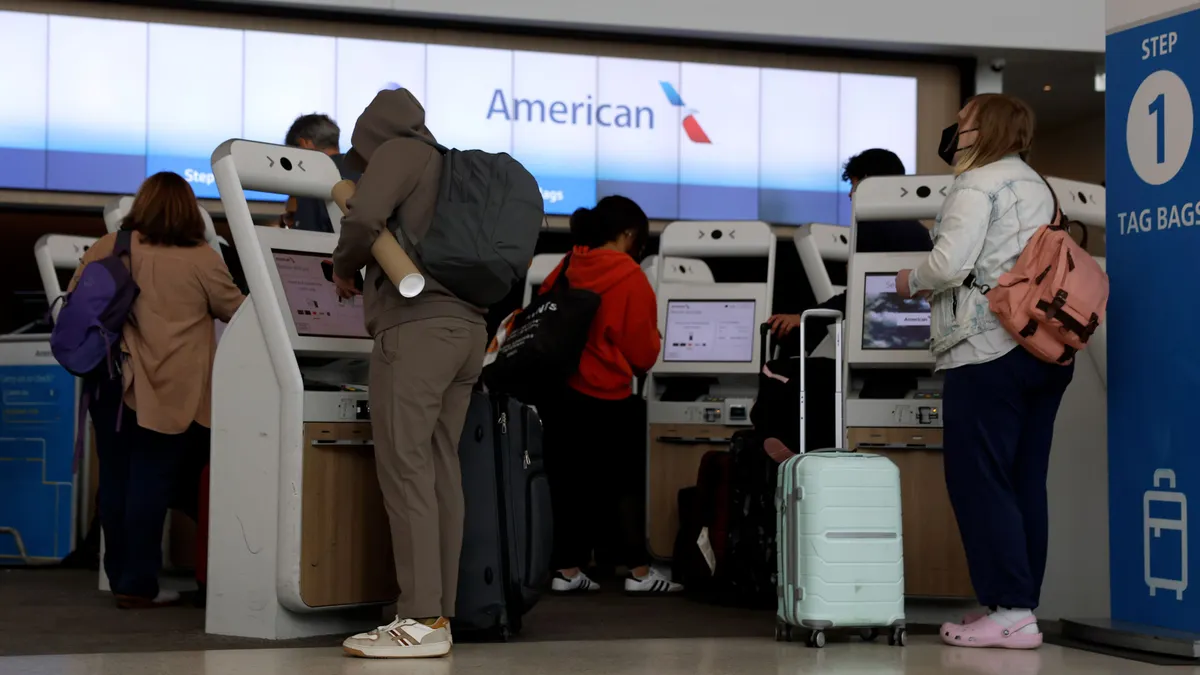The coronavirus pandemic put a spotlight on what's needed for business continuity. Digital technologies have become critical, accelerating adoption far beyond the neat quarter-by-quarter rollouts companies carefully outlined in the past.
Organizations had to enable domestic operations while working with the managed service providers required to keep business and technology operations running day by day.
Service providers around the world had to enable remote work while contending with contract constraints and limited infrastructure. India, where the services industry is king, highlighted the challenges of remote work.
In India, the IT and business process management is worth $191 billion, employs 4.4 million people and adds 8% to the country's GDP, according to NASSCOM, the tech industry trade body and chamber of commerce in India. The country contributes 55% of the global outsourcing market.
Offshore service delivery gained prominence in the 2000s as companies identified cost savings from moving work abroad.
Most Fortune 500 companies have significant outsource support, said David Rutchik, executive managing director of Pace Harmon, in an interview with CIO Dive. India was the first to really enable this, and offers all companies' needs in terms of expertise, workforce quality, lower costs and the ability to scale.
The industry will feel a crunch on the backend of the COVID-19 crisis as companies try to turn off unnecessary spending. While digital transformation efforts are slated to steam on, new projects will receive extra scrutiny.
Outside of a recession, the services industry historically grows 5-6%, depending on the market segment, Dean Blackmore, senior research director at Gartner, told CIO Dive. Infrastructure as a service grows 30%, while service desk outsource is relatively flat.
Now, based on an economic scenario that would see a 3% contraction in GDP, the market could shrink 4% this year and 2% in 2021, according to Blackmore. The biggest contraction would hit project-based services, consulting and implementation this year. Those are easy areas to turn off.
In the scenario, managed services would see a six to nine month lag in impacts, Blackmore said. Those budgets are cut through contract negotiations, which would arrive in 2021 and return to growth in 2022.
"We won't hear any horror stories from clients at the moment" because everyone is working together, Blackmore said. In four to six months, industry will hear what providers did or did not do well, and the reasons behind it.
India goes on lockdown
Whether in New York City or the center of India, daily life ground to a crawl and a large portion of the population began working from home.
India began its shutdown on March 25, affecting the movements of 1.4 billion people. The initial lockdown was scheduled for 21 days, but Prime Minister Narendra Modi extended it until May 3.
In India, workers typically go to campus office locations, which have physical and logical security. "In many cases, agreements are structured so they can't bring anything home," Rutchik said.
Laptops are not as ubiquitous in India, and a lot of providers had to scramble to get basic laptops and VPN services or virtual desktops so workers can continue to operate, according to Rutchik. Wi-Fi connectivity is also a concern in some locations.
Despite the scramble to continue operations, the "wheels are still on" the services sector, Rutchik said. The bigger challenge is for new deals put in place or project in transition, because that requires contractors to increase hiring.
Tata Consultancy Services: A case study
Tata Consultancy Services has more than 448,000 consultants working in 46 countries. The company brought in $22 billion in revenue in FY2020, which ended in March.
Its core product, consulting and providing services, fits into a massive industry dedicated to IT services, which includes managed services, product implementation and business process outsourcing.
In the services industry, the biggest concern is the people and TCS's No. 1 priority was to ensure the safety and wellbeing of its workforce, Ashok Pai, VP and global head, Cognitive Business Operations at Tata Consultancy Services, told CIO Dive. Pai's service line supports IT infrastructure, including data centers and cloud services, and business operations.
Early on, TCS put travel restrictions on employees and canceled large, internal meetings. The company was able to learn from its China operations, which was hit first during the outbreak.
To allow TCS employees to work from home, with a few remaining in the office, the company also:
-
Launched the Secure Borderless Workspaces (SBWS) model, which helped address data privacy, and information security challenges. It provided different models for people to work from home, depending on the device, whether it was a customer-provided laptop or a personal device, Pai said.
-
Turned to the Machine First Delivery Model, which addresses how to automate repetitive tasks. TCS was able to use automated technology to help make infrastructure and desktops available to its workforce.
The quick shift brought numerous challenges, Pai said. Moving work remote raised questions about desktops, adapters, internet dongles and Wi-Fi concerns. And with the curfew in India, the company had to have enough curfew passes to get people goods.
There was also the concern of the "physical and emotional wellbeing of the workforce," Pai said. TCS's HR team connected one on one with every associate to see how the workers and their families were doing.
Despite constraints, TCS was able to scale workforce adoption to the majority of its employees. Close to 90% of its employees can operate under the SBWS model, Rajesh Gopinathan, CEO and managing director of TCS, speaking during the company's Q4 earnings call this month.
TCS is projecting a "challenging few quarters," after "the pandemic completely reversed the positive momentum that we had seen building up in some of our biggest verticals in the first two months of the quarter," said Gopinathan. But TCS is modeling three to four quarters out, "by which time we can get back to the same revenue and profitability levels that we are currently at."
Change nears for the IT services industry
Discussion of the "new normal" are coming to the fore as the end to lockdowns are in sight. For some organizations, post-COVID-19 will see portions of the workforce remaining remote. But in the year ahead, with a recession ahead, world economies face continued disruption.
Market dynamics and economies will shift, but the impact is hard to quantify at this time, TCS told CIO Dive in a statement.
Projects spearheaded by the service industry are critical, as the move to remote work accelerated the need for digital technologies.
"Organizations across the world are realizing the need for operational and systems resilience," TCS said, citing comments from Gopinathan. "Many of the large deals we signed during the quarter address precisely that need," focusing on leaner, faster and more resilient systems.
The large deals include a $1.7 billion agreement with Walgreens Boots Alliance to expand its managed services with TCS.
When consulting companies handle customers' intellectual property, there are lingering concerns about physical and data security. It's in the outsourcer's best interest not to let any information outside of heavily secured facility.
But TCS is shifting what's mandatory with its workforce. Leading up to 2025, TCS will ask 75% of its workforce to work from home, NG Subramaniam, COO of TCS, told Business Today. To remain productive, the company says it will not need more than 25% of the workforce working in office.
Others aren't forecasting such drastic changes to an industry with security and compliance concerns.
"India is still the premier offshore location. I think it will be going forward," Rutchik said. The rapid transition to remote work may not represent the "new normal" widely discussed elsewhere.
Companies will put capabilities in place so future business continuity and disaster recovery plans make room for pandemic concerns, Rutchik said. For example, companies could increase laptop stores and boost connectivity in residential locations.
But while the industry may change, outsourced services will go back to core facilities, Rutchik said.























